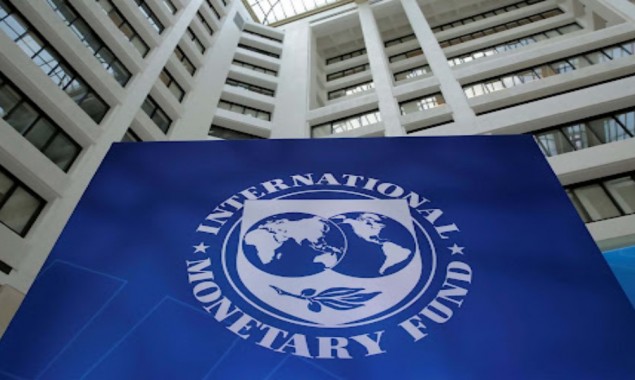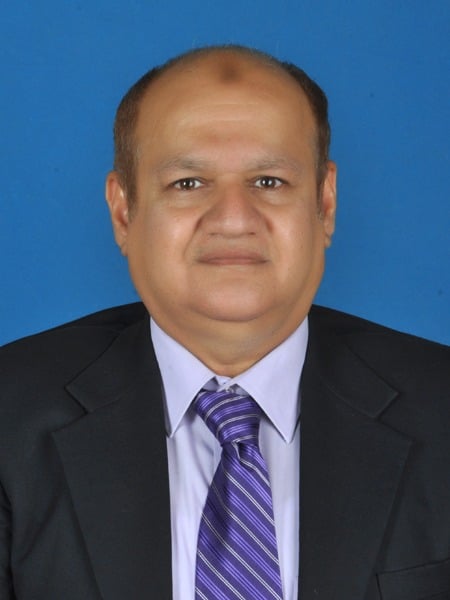
IMF
ISLAMABAD: The government wants to continue the International Monetary Fund (IMF) Programme but it will not compromise on economic development.
Launching the comprehensive roadmap, focusing in the vertical form on 14 special sectors of the economy, to ensure planned, inclusive and sustainable economic growth in the country, Federal Minister for Finance and Revenue Shaukat Tarin said that it was after 1972 that such a strategy was being presented by the government under which short-, medium- and long-term plans were being devised by working groups in consultation with the stakeholders and their implementation would be monitored.
The minister said from September, the performance in these 14 sectors would be monitored and Prime Minister Imran Khan would be given a briefing about the execution of the plans every month.
The exercise was aimed at accelerating the growth rates from 3 per cent to 6 per cent in three years, keeping inflationary expectations subdued, generating employment opportunities, and reducing poverty by strengthening the social safety net.
Hence, the minister said, the plans do not focus only on devising strategies but also on ensuring their implementation, which was unprecedented.
Tarin said that there were growth cycles of four to five years, but the country could not sustain it due to inconsistency; therefore, this strategy was aimed at bringing stability and sustainability in the economic policies and performances.
Making this comprehensive plan was the organised way of moving forward, as is being practiced in the developed countries, he said, adding that if there was no plan, everyone would be going in their own direction; therefore, it would lead the country to nowhere, so these short-, medium- and long-term plans have been devised with the help of all stakeholders to go in the right direction.
The minister said economic experts of Pakistan Institute of Development Economics (PIDE) would help different ministries to implement the plan; hence, there was no need to have fresh inductions in the ministry.
The Economic Reform Unit at the Ministry of Finance would be facilitating these activities, Tarin said.
Regarding the performance of economy, the minister said the economic indicators were showing positive results, citing the Business Confidence Index (BCI) Survey that indicated that the overall BCI has increased 59 per cent, adding that the textile exports also went up 17 per cent, whereas the country was now exporting mobile phones.
Special Assistant to the Prime Minister Dr Ishrat Husain, while elaborating the details of the Economic Advisory Council said the country has made a choice between elitist and inclusive growth.
For economic justice, the government should go for inclusive growth and for that devolution power to the grass-roots level of the local bodies has to be ensured, he added.
“Without empowering the local bodies administratively and financially will remain a wishful thinking,” he said. Dr Husain said that investment-to-GDP ratio of Pakistan is one of the lowest in the region and it has to be increased from the existing level of 20 per cent to 30 per cent, whereas the tax-to-GDP ratio has to increase from the existing level of 10 per cent to 11 percent to 20 per cent.
“Our per annum expenses are 20 per cent of the GDP and to finance the gap of 9 per cent to 10 per cent, the government has to do massive borrowing from local and international lenders.
Dr Husain said that in the roadmap comprehensive plan for restructuring and privatisation of the state-owned enterprises, the circular debt and vocational training for youth has been submitted.
Minister for National Food Security and Research Syed Fakhar Imam said that the government was striving to ensure a proper rate of returns to farmers for their produce to improve their living standards, as well as maintaining sustainable agriculture growth in the country.
Imam said that special focus was being paid on the upgradation of research institutions to bring the quality of local scientists at par with the international standards for benefiting local extension and growers.
Proper policies of the present government was bearing results, as all major crops such as wheat, rice, sugarcane, maize and other minor crops witnessed significant increase during the last season, he said, adding that due to timely announcement of minimum support price of wheat, local grain output increased 2.2 million tonnes.
Meanwhile, other crops, including rice output increased one million tonnes, maize 700,000 tonnes and sugarcane output also increased, he said, adding that due to sustainable wheat output, the local demand and supply would likely to remain smooth.
The government had announced intervention price for cotton crop after eight years, Imam said, adding that it would encourage and protect the local farmers and help enhance its output, as cotton was an important cash crop of the country and a vital source of raw material for the local industrial sector.
The minister also said the government was striving to ensure the provision of inputs at affordable rates, besides extending the outreach of research and extension services to the doorstep of farmers, adding that it was expected to achieve 10 million cotton bales during the current season.
The agriculture sector was badly neglected by all the previous governments and was not included in the national mainstream for the last 20 years, Imam said, adding that the agriculture sector was growing with an average of 4 per cent from 1960 and during the last 20 years, it was gradually on a declining trend.
During the last financial year, despite Covid-19 pandemic, under the special directives of the prime minister, the budgetary allocations for the agriculture sector were increased, he said, adding that the measures were taken to promote mechanisation of the agriculture sector.
The government was also providing subsidies for the construction of water channels, purchase of laser land levelers, the minister said, adding that to involve the large bulge of youth in agriculture, loans would also be provided under the prime minister’s Kamyab Jawan Programme.
Adviser to the Prime Minister on Commerce and Investment Abdul Razak Dawood said that his main focus was on raising exports, which would help strengthen the country’s economy.
He said the government had fixed the target for the country’s total exports at $38.7 billion during the current fiscal year, of which $31.2 billion exports target is fixed for goods, while the rest $7.5 billion for the services sector.
“So far, we are on target in goods’ exports, while we are also hopeful to achieve the services exports target,” he added.
The adviser said, at present, pressure was mounting on the country’s imports, which would be controlled.
The imports of the country were high because traditionally Pakistan always relied on trade that was not ‘Made in Pakistan’.
“Now we are implementing the policy of “Made in Pakistan”. The best example of which is that the number of locally-manufactured mobile phones has now exceeded the phones that were imported,” he added.
In addition, Dawood said that the industrialisation in the country was increasing because of tariff rationalisation, adding that the government had waived off the tariff on 50 per cent raw material for enhancing the manufacturing of the country.
Minister for Industries Khusro Bakhtyar said that due to the Covid outbreak, manufacturing and production sectors were badly dented around the globe and in Pakistan, as well.
Despite the pandemic, the country’s large-scale manufacturing (LSM) growth managed to grow historic 15 per cent in the fiscal year 2020/21, which was the highest in 10 years.
He said keeping in view the higher LSM growth, the country’s Gross Domestic Product (GDP) growth, which remained 3.7 per cent in the previous year could go up to 4.5 per cent when the final figures are calculated.
The minister said new industrial sectors would be introduced that would help raise exports and substitute the imports of the country.
Bakhtiar said that the government is now focusing on the manufacturing of basic raw materials to bring down the cost of exporting industries. Karachi is a lifeline of Pakistan’s economy and that is why the government is establishing an industrial zone on 1,500 acres of Pakistan Steel Mills idle land.
About the divestment process of Pakistan Steels Mills, the finance minister said the process was on track, as the expressions of interest, in this regard, were being called by next week.
With respect to Pakistan’s ongoing programme with the International Monetary Fund, the minister said, the programme would not be called of and it would continue as per the plan.
Read More News On
Catch all the Business News, International News, Breaking News Event and Latest News Updates on The BOL News
Download The BOL News App to get the Daily News Update & Follow us on Google News.




